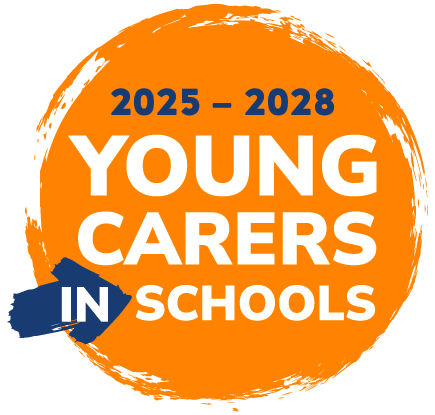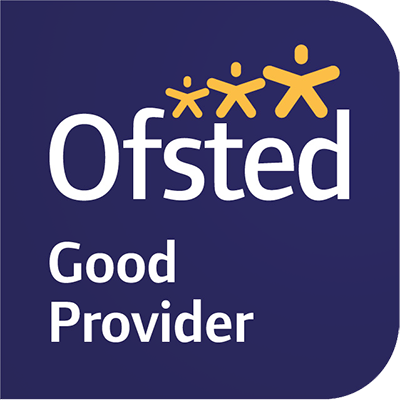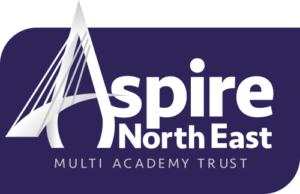Science Curriculum Overview
Knowledge Organisers
-
• Year 7 Cells • Year 9 Fundamentals: The Body
• Year 11 Inheritance & Variation
-
• Year 7 The Particle model -
• Year 7 Speed -
• Year 7 Universe Knowledge -
• Year 7 Variation • Year 7 Human Reproductive System
-
• Year 7 Variation
-
- Develop scientific substantive knowledge;
- Develop understanding of the nature, processes and methods of science through different types of scientific enquiry that help them answer scientific questions about the world around them;
- Develop and apply disciplinary knowledge such as: observational, practical, modelling, enquiry, problem solving and mathematical skills, both in the laboratory, in the field and other environments;
- Develop their ability to evaluate claims based on science through critical analysis of the methodology, evidence and conclusions, both qualitatively and quantitatively.
- Resilience (Aiming High, Staying Positive);
- Collaboration (Teamwork, Leadership, Listening, Speaking);
- Creativity (Problem Solving).
Key Stage 3 Curriculum
Our Key Stage 3 Curriculum:
Three year KS3 where students complete the KS3 National Curriculum as well as bridging topics known as ‘Fundamentals’ to support students accessing KS4. There are 8 hours per fortnight for Year 7, Year 8, and Year 9.
Download the full policy at the link above for a full break down of learning for each Term.
Key Stage 4 Curriculum
Our Key Stage 4 Curriculum:
The KS4 Curriculum is taught over 2 years. Y10 and Y11 have 12 hours of Science per fortnight. 11/Sc1 complete AQA GCSE Separate Science (8461, 8462, 8463) whilst all other classes complete AQA GCSE Combined Science (8464).
Download the full policy at the link above for a full break down of learning for each Term.
Academy Aim
Here at Sandhill View Academy, we aim to securely equip all of our students for life beyond school as successful, confident, responsible and respectful citizens. We believe that education provides the key to social mobility and our curriculum is designed to build strong foundations in the knowledge, understanding and skills which lead to academic and personal success. We want our students to enjoy the challenges that learning offers. Ultimately, we want students to ‘Know More, Do More and Go Further’ Our aims are underpinned by a culture of high aspirations. Through developing positive relationships, we work towards every individual having a strong belief in their own abilities so that they work hard, build resilience and achieve their very best.Intent
We aim to provide a high-quality science education that provides the foundations for understanding the world through the disciplines of biology, chemistry and physics. Science is vital to the world’s future prosperity, and our curriculum allows students to develop and apply their substantive knowledge, disciplinary knowledge and discover and participate within STEM careers. Through building up a body of core knowledge and concepts, pupils are encouraged to recognise the power of rational explanation and develop a sense of excitement and curiosity about natural phenomena. They will be encouraged to understand how science can be used to explain what is occurring, predict how things will behave, and analyse causes. The curriculum aims to ensure that knowledge is taught to be remembered, not encountered. The curriculum embraces learning from cognitive science about memory, forgetting and the power of retrieval practice. Knowledge for each scheme is planned to be interleaved with prior and future learning to support students’ understanding of the most complex concepts. The curriculum aims for pupils to: The curriculum aims for pupils to:Sequence and Structure
COVID Recovery ‘Unlocking Learning’ As the impact of COVID is now impacting on students who missed learning during KS2 all students complete a baseline assessment upon entering the Science curriculum in September. This allows for an understanding of the gaps in pupil knowledge and how to further support their progress in future planning. Many students missed the opportunity to complete practical activities that further develop their disciplinary knowledge and therefore an emphasis on students accessing practical experimental work is made. Students complete skills-based units throughout Year 7 and Year 8 to support student transition to Secondary education.Literacy:
We know that students who read well achieve well. As such all subject areas are committed to providing regular opportunities to read extensively. In Science we provide opportunities for students to read Tier 2 and Tier 3 vocabulary with an emphasis on comprehension and application. We also support our students to use ambitious vocabulary including using Frayer models and ‘push’ techniques to widen the vocabulary students can confidently include in the work they produce. Coherent and fluent writing skills are also imperative for student achievement, so we support student writing skills by offering opportunities for extended writing, with modelling, and sentence stems to support.Skills Builder
We are also explicitly embedding transferable ‘Skills Builder’ skills such as problem solving, aiming high and teamwork to prepare our students for higher education and employability skills for the future. This year in History we will focus on TEAMWORK including group decision making and recognising the value of others. PROBLEM SOLVING by exploring complex problems by analysing cause and effect, and understanding through research. Furthermore, we want our students to AIM HIGH by setting goals, prioritising tasks and involving others.
How does our Curriculum cater for students with SEND?
Sandhill View is an inclusive academy where every child is valued and respected. We are committed to the inclusion, progress and independence of all our students, including those with SEN. We work to support our students to make progress in their learning, their emotional and social development and their independence. We actively work to support the learning and needs of all members of our community.
A child or young person has SEN if they have a learning difficulty or disability which calls for special educational provision to be made that is additional to or different from that made generally for other children or young people of the same age. (CoP 2015, p16)
Teachers are responsible for the progress of ALL students in their class and high-quality teaching is carefully planned; this is the first step in supporting students who may have SEND. All students are challenged to do their very best and all students at the Academy are expected to make at least good progress.
Specific approaches which are used within Science include:
- Seating to allow inclusion
- Scaffolding to stretch and support in all lessons
- Resources are accessible yet challenging
- Displays and visual learning tools are used where necessary
- Where appropriate, support from additional adults is planned to scaffold students learning
- Group work and discussion
- Clear teacher/student communication
- Feedback that allows students to make progress, whether written or verbal
- Independent study/homework.
- Intervention when required
How does our curriculum cater for disadvantaged students and those from minority groups?
As a school serving an area with high levels of deprivation, we work tirelessly to raise the attainment for all students and to close any gaps that exist due to social contexts. The deliberate allocation of funding and resources has ensured that attainment gaps are closing in our drive to ensure that all pupils are equally successful when they leave the Academy. More specifically within the teaching of Science, we;
- Work to identify barriers, interests and what might help each pupil make the next steps in learning.
- Provide targeted support for under-performing pupils during lesson time, such as targeted questioning, live marking and seating
- Ensure there are opportunities for students to make use of resources and gain homework support outside of lesson time through the use of Teams
- Provide students with revision materials to reduce financial burden on families
Please see our separate Curriculum Improvement Plan for our most recent targets and interventions.
How do we make sure that our curriculum is implemented effectively?
- The Science curriculum leader is responsible for the design and implementation of the curriculum including quality assurance of lesson resources, schemes of learning, and assessments, as well as the monitoring and evaluation of this implementation to measure the impact.
- The subject leader’s monitoring is validated by senior leaders.
- Staff have regular access to professional development/training to ensure that curriculum requirements are met and subject knowledge developed.
- Effective assessment informs staff about areas in which interventions are required. These interventions are delivered during curriculum time to enhance pupils’ capacity to access the full curriculum.
- Curriculum resources are selected carefully and reviewed regularly.
- Assessments are designed thoughtfully to assess student progress, long term knowledge retrieval and also to shape future learning.
- Assessments are checked for reliability within departments and across the Trust.
There are several Science staff who mark for exam boards and provide vital CPD to the rest of the department to ensure reliability of data.
Gap analysis spreadsheets are used to identify areas of development for students at KS4 to identify areas of weakness. Enhanced results analysis is also used to identify departmental priorities for development to ensure students are making the highest progress
How do we make sure our curriculum is having the desired impact?
- Examination results analysis and evaluation.
- Half-termly assessments based upon substantive and disciplinary knowledge covered during this time.
- Lesson observations.
- Learning walks for KS3 and KS4 based upon departmental priorities.
- Work sample for each year group.
- Regular feedback from teaching staff during department meetings.
- Regular feedback from Middle Leaders during curriculum meetings.
- Pupil Surveys.
- Parental feedback.
- Staff feedback through staff voice surveys.





